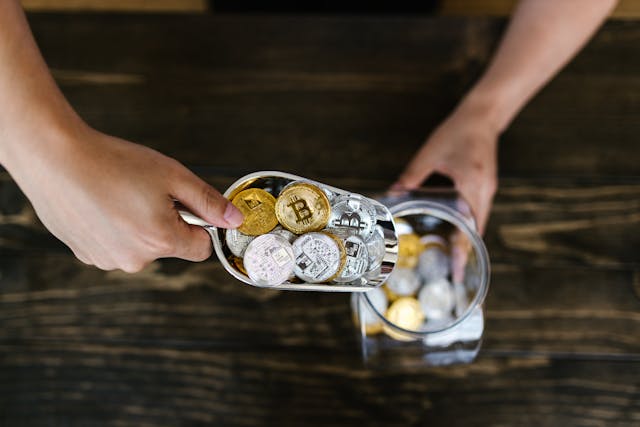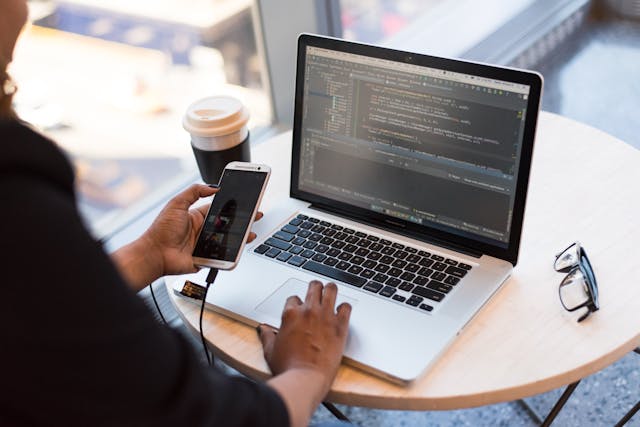🚀 Introduction to Crypto Investing
What is Cryptocurrency?
Cryptocurrency is a digital or virtual currency secured by cryptography. Think of it as internet money that isn’t controlled by any government or bank. Bitcoin, Ethereum, and Solana are a few names you’ve probably heard. Unlike traditional currencies, most cryptos operate on blockchain technology—an open, decentralized ledger that’s super hard to tamper with.
Why are Beginners Attracted to Crypto?
Simple: the hype, high returns, and FOMO. Many hear stories of overnight millionaires and want in. Plus, crypto feels like the “future of money.” But while it’s exciting, it’s also full of pitfalls for the unprepared.
The Risks Involved in Crypto Investing
High volatility, scams, loss of private keys, and lack of regulation are just a few. One wrong click and your entire investment can vanish. So, before diving in, arm yourself with knowledge and safety.
📘 Setting the Foundation – Understanding Before Investing
Educate Yourself First
Don’t just rely on YouTube hype videos. Read blogs, follow trustworthy crypto educators on X (Twitter), and get into some beginner-friendly forums like Reddit’s r/CryptoCurrency.
Learn the Basics of Blockchain Technology
Understanding how blockchain works gives you context for why cryptocurrencies are secure, decentralized, and often borderless.
Understand Crypto Terminology
Terms like HODL, DeFi, altcoin, and gas fees will hit you fast. A little crypto lingo goes a long way in helping you make informed decisions.
🏦 Choose the Right Crypto Exchange
Centralized vs Decentralized Exchanges
Centralized exchanges (like Binance or Coinbase) are user-friendly but involve trusting a third party. Decentralized exchanges (DEXs) like Uniswap let you trade directly from your wallet—but they’re trickier for beginners.
Look for Regulatory Compliance
Stick to platforms that follow legal rules in your country. It offers some level of protection if things go sideways.
Check for User Reviews and Reputation
A quick Google search can save you from shady exchanges. Look for red flags like withdrawal issues or hacks.
🔐 Securing Your Investments
Use Strong Passwords and 2FA
Your password should be long and random. Always enable 2FA (two-factor authentication). It’s one extra step that can stop hackers cold.
Beware of Phishing Attacks
Never click on suspicious links claiming to be from an exchange. Always type the URL yourself and bookmark trusted sites.
Avoid Public Wi-Fi for Transactions
Using public Wi-Fi to log into your crypto accounts is asking for trouble. Hackers can easily intercept your info.
💼 Wallets – Hot vs Cold Storage
What is a Crypto Wallet?
A crypto wallet stores your private keys—like your digital signature. No keys = no coins.
Benefits of Cold Wallets for Beginners
Cold wallets (offline) are the safest option. Unlike hot wallets (online), they can’t be hacked unless someone physically gets access.
Hardware Wallet Recommendations
Ledger and Trezor are solid options. Yes, they cost money—but so does losing your crypto.
📊 Diversify Your Crypto Portfolio
Don’t Put All Your Coins in One Basket
Just like traditional investing, spreading out your risk is smart. Don’t go all in on one token.
Stablecoins vs Volatile Assets
Stablecoins (like USDT or USDC) are tied to real-world currencies. They’re less exciting, but great for reducing risk in a volatile market.
Long-Term vs Short-Term Holding Strategy
Decide early: are you here for a quick flip or the long haul? Different goals = different strategies.
🚨 Avoiding Scams and Fraud
How to Identify Common Crypto Scams
Promises of guaranteed returns? Big red flag. Airdrops asking for wallet access? Scam. Research is your best weapon.
Never Share Your Private Keys
No legit platform will ever ask for your keys. Guard them like your ATM PIN.
Research Before Investing in ICOs or New Tokens
Initial Coin Offerings (ICOs) are popular but risky. Look into the team, the use case, and the whitepaper.
📄 Understand Regulatory and Tax Implications
Crypto and Taxes: What You Should Know
Yes, Uncle Sam (or your country’s version) wants a cut. Track your trades and keep records. Tools like Koinly or CoinTracker can help.
Country-Specific Crypto Regulations
Each country has its own rules. Make sure you’re compliant to avoid fines or jail time.
Reporting Your Crypto Gains
Even a $100 gain should be reported, depending on your local laws. When in doubt, talk to a crypto-savvy tax professional.
🧠 Emotional Discipline in Crypto Trading
Fear of Missing Out (FOMO)
FOMO leads to bad decisions. Just because a coin is pumping doesn’t mean you should jump in.
Greed and Panic Selling
Selling at the first dip or holding for “just a little more” are common traps. Stick to your plan.
Importance of Having an Exit Plan
Know when you’ll cash out. Profit is only real when it hits your bank account.
📰 Stay Updated with the Market
Follow Trusted News Sources
CoinDesk, CoinTelegraph, and Decrypt are solid. Avoid hype-only influencers.
Join Crypto Communities
Telegram, Discord, and Twitter spaces can be goldmines—just filter out the noise.
Track Market Trends and Charts
Even basic chart-reading can help you time your entries and exits better.
🔧 Use Secure and Trusted Tools
Wallets, Exchanges, and Trackers
Use battle-tested tools with a strong user base. Avoid anything too new or flashy.
Avoid Unknown Apps and Browser Extensions
Many browser extensions can act as spyware. Stick to verified ones from official sources.
🛑 Importance of Backup and Recovery Plans
Back Up Your Wallet
Write down your seed phrase. Don’t store it digitally. Don’t lose it.
Store Recovery Phrases Safely
Use a fireproof, waterproof metal seed storage if you can. Hide it well.
Set Up a Crypto Will or Succession Plan
What happens to your crypto if something happens to you? Set a plan.
📚 Learn From Mistakes – Yours and Others’
Read About Real-Life Losses
Plenty of people have shared their horror stories. Learn from them so you don’t repeat them.
What Can Go Wrong Even With Good Intentions
Even the best plans can go awry. Stay humble, stay alert.
🔚 Conclusion
Cryptocurrency is a powerful new way to invest and build wealth—but it’s also full of traps for the uninformed. As a beginner, your #1 job is to protect your assets while you learn. That means choosing the right tools, staying skeptical of too-good-to-be-true offers, and never putting in more than you can afford to lose. The crypto world rewards those who prepare—and punishes those who don’t.
So, go slow, stay smart, and don’t stop learning.
❓ FAQs
1. What is the safest wallet for crypto beginners?
Hardware wallets like Ledger Nano X or Trezor are ideal for beginners who want strong security with user-friendly features.
2. How much should I invest in crypto as a beginner?
Only invest what you can afford to lose. Start small—think 1–5% of your total investments.
3. Can I recover my crypto if I lose my private keys?
No. If you lose your private keys or seed phrase, your crypto is gone forever. Always back it up.
4. Is crypto investing legal in my country?
It depends. Many countries allow it but have different rules. Always check your local regulations before investing.
5. Are all cryptocurrencies safe to invest in?
Absolutely not. Many tokens are scams or poorly designed. Always do your own research (DYOR) before buying anything.
Please don’t forget to leave a review.


